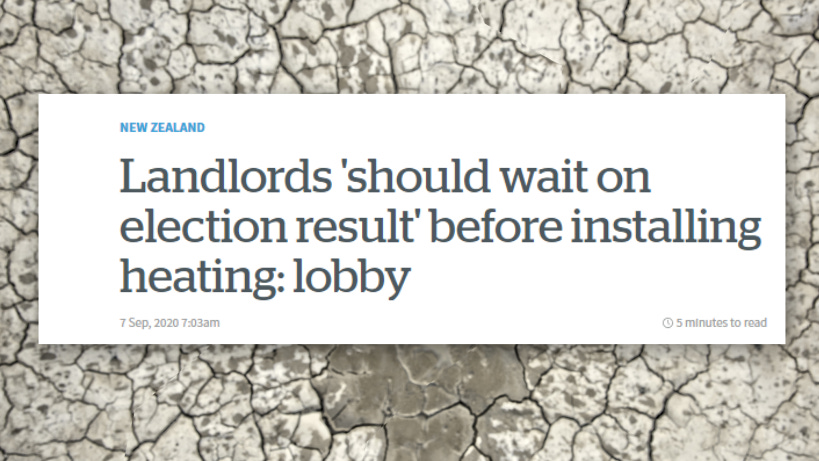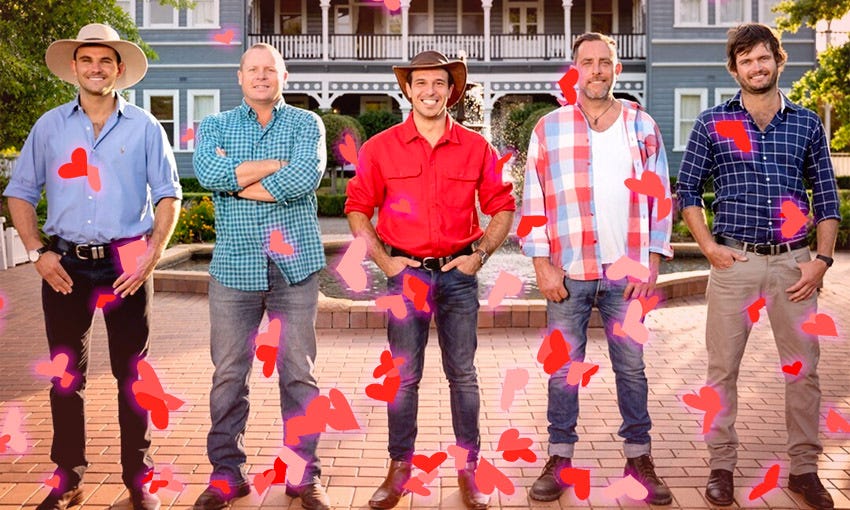Good morning and welcome to The Bulletin. Today: Jacinda Ardern promises a new holiday, Winston Peters’ uphill challenge, and New Zealand’s biggest privately owned broadcaster has been snapped up by the Discovery Channel.
The discombobulating 2020 campaign lurched back into action yesterday, with leaders scattered about the country. Judith Collins is in Hawkes Bay, where she announced the National Party policy to tackle meth addictions. Jacinda Ardern is basing herself for most of the week in an unlikely campaign hub: Morrinsville. Yesterday she shuttled to Rotorua to offer some stardust – almost literally – in the form of a pledge to introduce a new public holiday for Matariki. It wouldn’t, however, be introduced until 2022.
You know you’re in a campaign proper when the press releases fly like an asteroid field. As Stewart Sowman-Lund surveyed in yesterday’s Election Live, the Greens said thanks for coming around to our way of thinking and the rest said an economic crisis is no time to add a holiday. A quick tour of the subject headers. “Greens pleased with Labour’s support for Matariki Day.” National: “Labour’s economic plan – another public holiday.” NZ First: “Additional public holiday unneeded” (no mention of the word “Matariki” in theirs). And Act: “Jacinda Ardern is in la la land.”
Ardern would be delighted at the dissenters, reckoned NZ Herald political editor Audrey Young. “The more that Labour can typecast its campaign as positive, and the rest as the knockers the better.”
A couple of reads from the back catalogue on the tide that has made a Matariki public holiday so likely: Laura O’Connell Rapira wrote in July about “how Jacinda Ardern could make Matariki this generation’s ‘Māori Language Act moment’”. And Alex Braae, a couple of years ago, “A public holiday for Matariki is inevitable”.
Compare the main parties’ policies on Matariki, and just about everything else, on the country’s only truly credible comparison tool, Policy, here.
The Winston Peters battlebus swung into Dunedin yesterday, with visits to the Octagon, Otago University and, of course, Mosgiel. The NZ First leader, a scarfie at heart, played a little table tennis on campus, and got snapped hooning a cheeky durry.
His task this election is as steep as Baldwin Street, however. Writing on The Spinoff this morning, Ben Thomas considers NZ First’s plight. Alighting on the lack of a coherent strategy, and that incendiary interview on Q+A on Sunday, he concludes: “Never write off Winston Peters, the saying goes, echoing through the ages. But against the ropes, it’s hard to see which of his traditional reserves the veteran can draw on in the month before polling begins.”
He’s not rolling over, mind you. Peters told RNZ’s Jo Moir in Dunedin that he could make inroads despite the limitations on gathering sizes. “No one is out there going to all the small parts of this country and by the time they wake up the campaign will be over,” he said, while openly questioning why the government of which he is a part had the South Island still in level two.
Richard Harman is also with Peters on the trail. Of NZ First, he writes this morning on Politik: “Their strategy is obviously to hope that the polls will show a Labour-Greens government is inevitable and that the electorate will turn to them as the handbrake. But they might feel more confident if their leader could hold a rally or two.”
A big, appreciative shout out to Spinoff Members. Honestly, without the support of Spinoff Members we’d be a sliver, if that, of what we are today. If you’re not already signed up and you’re able to, please consider joining. Donations from Spinoff Members make it possible for us to focus on meaningful, unflinching and resource-demanding journalism. Whether it’s Covid, or the misinformation peril, or the stories that you just won’t see elsewhere, Member contributions are mission critical. Plus: a tea towel to lift your mood and dry your dishes. Have a look here.
For the first time since the 2016 exit of Mark Weldon, there were reports of lunchtime champagne corks popping at Mediaworks’ Flower Street base yesterday, upon news that the long rumoured sale of the financially troubled broadcaster to the US giant Discovery was all but a done deal.
“It brings to an end a saga that has run for nearly a year, since news broke the channel was for sale, and in some ways since at least the Mark Weldon era – when TV3 began a period of rapid transformation that saw some of its most popular stars leave and its public-facing emphasis shift from news, local drama and comedy towards multi-night locally made reality TV,” writes the Spinoff’s Duncan Greive, who spoke to senior figures at MediaWorks and Discovery yesterday to find out what it means for NZ’s largest private broadcaster.
“Discovery is essentially backing itself to take the long-term loss-making TV business and turn it around, presumably by filling out much of the schedule with content it already owns and creates elsewhere, and is therefore low-to-no cost.”
The biggest immediate relief for people who care about news and New Zealand content, which almost certainly means you, is this: “What it has said it will not do is abandon its commitment to news, or to local productions … According to [outgoing MediaWorks CEO] Michael Anderson, Discovery ‘has been very clear about the value of news’ throughout the process, [saying] news was core to the brand’s value.”
Duncan’s unhealthy fixation with the machinations of the media business is medicated in the form of a podcast called The Fold. The most recent episode, exploring the latest NZ on Air report into the national media audience, has no guests; it’s just Duncan, on his own. One day, when the flames of the media crisis reduce the Spinoff to a pile of ashes, the only thing left will be Duncan, talking alone, animatedly and at length, into a microphone about the media. Anyway, though it pains me to say it, it’s extremely good. Listen here.
New rules that require decent heating and insulation of rental properties kick in next year, but given the National Party has suggested they might repeal them, landlords might want to hold off for now. That’s the advice from Andrew King of the NZ Property Investors Federation, as reported by the NZ Herald.
His argument: some tenants would rather pay less than have a heat pump. Which may be true. But as Hayden Donnell argues in The Spinoff this morning, that’s a pretty horrifying equation. “The reality is, many of our most vulnerable people don’t actually get to choose where they live. They don’t get to pick between a nice, warm house and a cold garage,” he writes. “They’d all like a heat pump. They’d all like ventilation and insulation. They just don’t get any of that if it’s not legally required. The only choice they’re offered is between accepting dire living conditions, and possible sickness, and being forced onto the street or into their cars, which is really no choice at all.”
The long-running battle between a Christchurch couple and Southern Response has inched closer to closure with the Court of Appeal largely dismissing the state-owned insurer’s appeal against a ruling that it was guilty of misleading and deceptive behaviour in its dealings with Karl and Alison Dodds, whose home was written off after the 2011 earthquake.
The case centres on the Dodds’ claim that they had been deceived into agreeing to a cash offer from the insurer, which had failed to disclose another estimate to repair their home. The Dodds’s lawyer, Peter Woods, told RNZ: “The Court of Appeal was absolutely clear Southern Response had made representations that were false, that the Dodds had relied on those, they were induced to enter into an agreement based on those misrepresentations, that the misrepresentations were also misleading and deceptive, and the Dodds were entitled to almost their full claim, so it totals up to about $250,000.”
Why is the case so important? John Campbell, who has pursued the story across roles at Three, RNZ and now TVNZ, laid it all out in a longread last year.
A happy blizzard of new reading on The Spinoff: Gwen Isaac on making a film about Siouxsie Wiles at the peak of the first Covid outbreak in NZ. Alex Braae on what can Facebook comments tell us about the official NZ Covid-19 response. Paul Spoonley on what the sudden end of immigration means. Annie Te One explains what’s up with Māori seats on councils. Sam Brooks reviews the new Charlie Kaufman film, I’m Thinking of Ending Things. And Tara Ward with all you need to know about the return of The Farmer Wants a Wife.
To finish: I fear it might be breaching an ancient Spinoff dictum, but I nevertheless recommend to you … a Twitter thread. Marc Daalder, who has proved himself one of New Zealand’s most thorough and insightful journalists across the Covid crisis, has picked apart the arguments put forward by Simon Thornley (skipper of the sloop Plan B, who you may have seen often and just about everywhere complaining that he never gets any coverage). On Sunday, Thornley was on Q+A, reading a statement from a sheet of paper, and speaking up for the Swedish approach. Marc’s calm dismantling of it all begins here.




